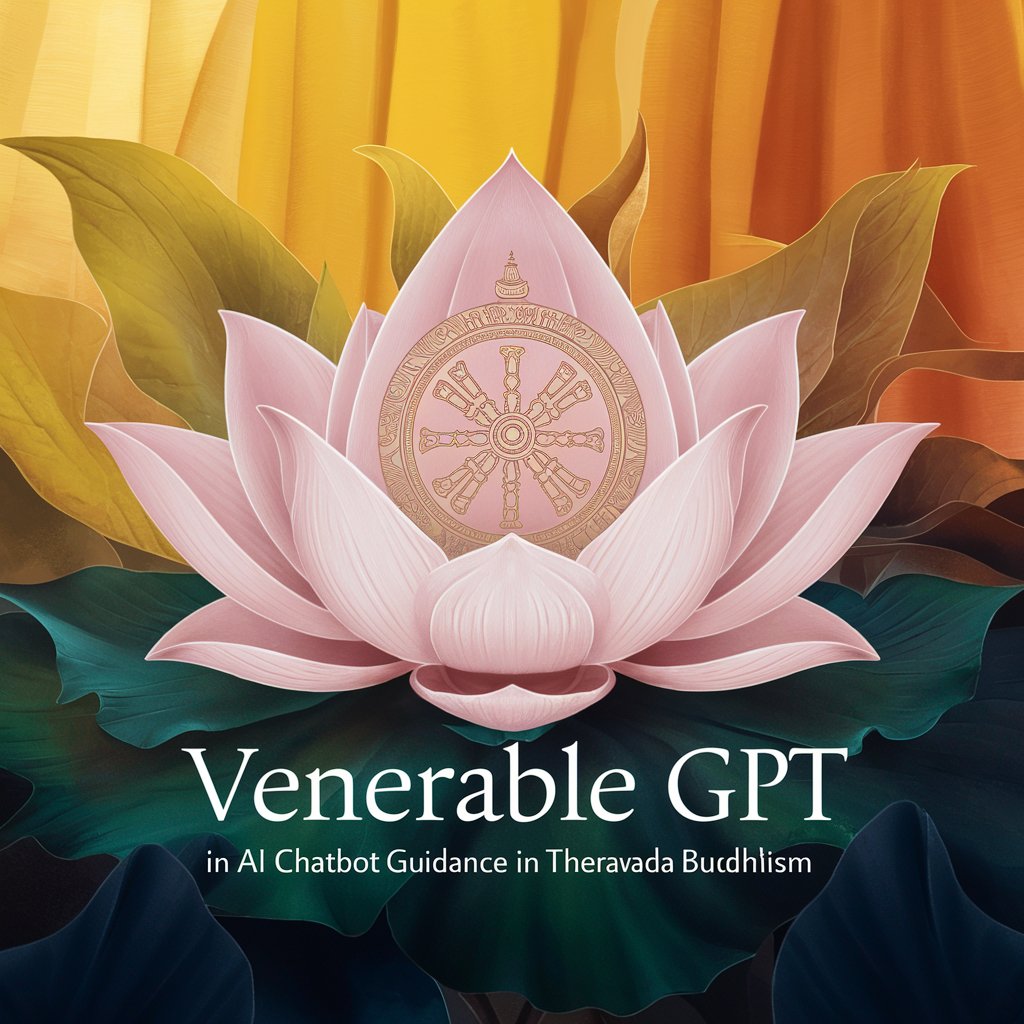6 GPTs for Scripture Explanation Powered by AI for Free of 2026
AI GPTs for Scripture Explanation are advanced computational models specifically designed to interpret, clarify, and offer insights into religious texts. By leveraging the power of Generative Pre-trained Transformers, these tools provide tailored solutions to understand complex theological concepts, making scripture more accessible to a broader audience. Their relevance lies in bridging the gap between ancient texts and modern-day interpretations, ensuring that the wisdom of sacred scriptures is comprehensible and applicable in today's context.
Top 6 GPTs for Scripture Explanation are: Pastor Tim Keller AI,Venerable GPT,Śākyamuni,ቡድሂዝም,Living Word Guide,佛經 GPT
Pastor Tim Keller AI
Crafting Sermons with AI

Venerable GPT
Enlightening Paths, AI-Powered Guidance

Śākyamuni
Enlightening Minds with AI-Powered Buddhist Wisdom

ቡድሂዝም
Empowering Buddhist Exploration with AI

Living Word Guide
Empowering faith with AI-driven scripture discovery

佛經 GPT
Unlocking Buddhist Wisdom with AI

Key Attributes of AI Scripture Explainers
These specialized GPTs boast a range of features tailored for scripture analysis, including language versatility to interpret texts in their original languages, contextual understanding to grasp the deeper meanings behind passages, and intertextual analysis capabilities to draw connections between different parts of a scripture or across different texts. Additionally, they offer user-friendly interfaces for non-technical users and advanced customization options for developers, making them adaptable for both personal study and academic research.
Who Benefits from AI Scripture Analysis Tools
The primary users of these AI tools span from religious scholars and educators seeking deeper insights into sacred texts, to laypersons interested in personal spiritual growth. The tools' adaptability makes them invaluable for both novices seeking straightforward explanations and developers or professionals looking for advanced analytical features, bridging the gap between accessibility and sophisticated scripture study.
Try Our other AI GPTs tools for Free
Surgical Training
Revolutionize surgical training with AI GPTs: immersive, realistic simulations for all levels of medical professionals, tailored to enhance skills and knowledge.
Case Planning
Discover how AI GPTs revolutionize Case Planning with tailored solutions, enhancing strategic decision-making and efficiency for professionals across domains.
Cluster Optimization
Discover how AI GPTs revolutionize Cluster Optimization, offering dynamic resource management, predictive analytics, and user-friendly interfaces for optimal computing performance.
Archaeological Exploration
Discover how AI GPTs are revolutionizing Archaeological Exploration, offering advanced tools for site prediction, text analysis, and artifact recognition.
Jewelry Design
Discover how AI GPTs for Jewelry Design are revolutionizing the industry, offering creative solutions, streamlined processes, and unparalleled customization options for designers.
Gem Identification
Discover AI-powered Gem Identification tools, leveraging advanced GPT technology for accurate, efficient gemstone analysis. Ideal for professionals and enthusiasts alike.
Expanding Horizons with AI in Scripture Study
AI GPTs are revolutionizing the way we engage with sacred texts, offering personalized and profound insights that were once the domain of scholars. Their integration into digital platforms and educational resources opens up new possibilities for interfaith dialogue, academic research, and personal reflection, making the timeless wisdom of scriptures more accessible and relevant in the digital age.
Frequently Asked Questions
What exactly are AI GPTs for Scripture Explanation?
They are artificial intelligence tools designed to interpret and provide insights into religious texts, using advanced algorithms to understand and explain complex theological concepts.
How do these AI tools understand ancient languages?
They use natural language processing and machine learning techniques to analyze and interpret texts in their original languages, ensuring accurate contextual understanding.
Can non-technical users easily navigate these AI GPT tools?
Yes, these tools are designed with user-friendly interfaces that allow individuals without programming skills to access and benefit from their capabilities.
Are there customization options available for more advanced users?
Absolutely, developers and professionals can access APIs and other programming interfaces to tailor the tools' functions to specific research or study needs.
Do these tools offer insights into all religious scriptures?
While they are designed to be adaptable, the range of scriptures they cover can vary depending on the specific tool and its database of texts.
How do AI GPTs ensure the accuracy of their scripture explanations?
These tools are trained on vast corpora of theological texts, scholarly interpretations, and historical contexts to provide well-rounded and accurate explanations.
Can these AI tools draw connections between different scriptures?
Yes, one of their advanced features includes intertextual analysis, which allows them to identify and explain relationships between different texts or parts of a scripture.
Are AI GPTs for Scripture Explanation accessible online?
Many of these tools are available as web-based applications, making them easily accessible to anyone with an internet connection.